041216_YKBP_A10.pdf










10 Broadcaster Press
April 12, 2016 www.broadcasteronline.com
Spring
Home Improvement
Make the Most of Mulching
Lawns
and gardens
can often
benefit from
the laying
of mulch.
Mulch
serves
various
purposes in
lawns and
gardens,
and many
experienced
lawn and
garden enthusiasts lay
mulch to ensure their properties make it through
spring, summer and fall unscathed.
First-time homeowners with little or
no landscaping experience may not
understand the benefits of mulch,
which can be used to strengthen soil
and protect properties from the elements.
What is mulch?
Mulch refers to a material spread
around or over a plant to enrich
and/or insulate its soil. Many homeowners prefer mulch made of wood
chips, which is both effective and
readily available. The U.S. Environmental Protection Agency notes
that organic mulches, which include
leaves, wood chips, compost or grass
clippings, can be used by homeowners who want to develop eco-friendly
landscapes.
Why mulch?
Mulching can benefit plants around
a property in various ways. Many
people lay mulch because the mulch
helps soil retain moisture in the summer, when temperatures tend to be
at their hottest. This can help plants
survive summer heat waves.
Mulch also can be used to suppress
weeds. Weeds, which steal moisture
plants need to build strong roots
and survive summer, need light to
grow. When
laid correctly, mulch
deprives
weeds of the
light they
need to grow.
Organic
mulches can
even provide
homes for
crickets and
a type of
beetle that
feed on weed
seeds.
Mulch
also can
deter harmful pests depending on the
type of mulch homeowners choose.
When purchasing mulch, homeowners will have to choose between the
aforementioned organic mulch or
man-made mulches, which may be
made of plastic or rubber. While manmade mulches may repel pests, they
also can have adverse effects. Plastic, for example, can heat up in the
summer and cause plants to burn.
Certain organic mulches can repel
insects that can threaten plants.
ThatÕs because the majority of
organic mulches increase the amount
of beneficial bacteria in the soil, and
they also increase the presence of
helpful insects that do not pose a
threat to plant life. Those helpful
insects help keep harmful insects at
bay.
Compost is a type of organic
mulch that may attract harmful
insects. While that does not mean
homeowners should shy away from
using compost as mulch, they should
know that they may need to employ
organic insecticides to combat their
unwanted guests.
Mulch is a potentially valuable tool
homeowners can use to improve the
look and health of their properties.
Tips for Safer Renovations
Home renovation projects
vary in scope. Something as
simple as repainting a bedroom counts as a renovation
project, as does a full kitchen
remodel. But no matter how
big or small a project, homeowners’ top priority should
always be safety.
Before beginning a project,
make a list of possible hazards and how to avoid them.
Here are some potential
dangers that can spring up.
• Asbestos:
Many homes built when
asbestos was legal still
contain asbestos materials.
Asbestos has been used in many applications, such as in ceiling materials, insulation, siding, and more. ThatÕs because
asbestos is flame retardant and serves
as an effective and inexpensive insulator.
However, asbestos fibers released into the
air during renovations can cause respiratory problems and even lead to lung
cancer. Asbestos needs to be removed
under specific guidelines and disposed of
properly. Disposal typically requires hiring a professional service.
• Dust and dirt:
Sanding, sawing, welding, and other
home renovation tasks can cast debris
into the air. Ventilation may be needed to
maintain clean, breathable air. Ventilation
can also shuttle any harmful fumes generated from construction materials outside
of the home. Do-it-yourselfers should
wear masks and eye protection to guard
themselves against debris.
• Electrical lines:
All homes may not have
been built in adherence to
modern-day codes. Electric
lines can be discovered
where they are least expected. When doing demolition
or drilling/nailing into walls,
it’s not uncommon to come
across electrical wires. Extra
caution needs to be taken,
and an electrician should be
consulted if the wires need
to be relocated.
• Chemicals:
Chemicals, such as sealants, cleaners, lubricants,
nMetro Creative Connections and fuel, may be used during
renovation projects. Such substances
can be dangerous to pets and children if
they are touched or accidentally ingested.
Exercise extreme caution when using
chemical products, making sure all product containers are sealed and kept out of
reach when not in use.
• Tools:
Cuts, abrasions, burns and more can
result when power tools and even manual
tools are used incorrectly. Learn how to
use tools before beginning a project, and
always put tools away when work is done
for the day.
• Falls:
Falls are a leading cause of household injury, and the chance of a fall may
increase when climbing ladders during
home improvement projects. Don’t climb
beyond where indicated on ladders and
always have a spotter on hand when
climbing is necessary. Wear harnesses,
sturdy footwear and gloves as well.
nMetro Creative Connections
Wash Your Car Like a Pro to Protect its Value JOHNSON
Vehicle owners know
maintaining a vehicle can
be a lot of work. Taking
the time to properly care
for a vehicle can prolong
its life expectancy and
help owners avoid breakdowns and other issues
along the way.
Regular washing is an
aspect of vehicle maintenance that some may
classify as a purely cosmetic benefit. Certainly
a car wash can keep the
vehicle looking its best,
but there are other advantages to
washing as well. Washing offers
preventative maintenance for the
car’s paint and can help prevent
rust and corrosion resulting
from dirt, acid rain and road salt.
Rust can compromise hydraulic
brake and fuel lines, as well as
many moving parts in the chassis
and frame. Corrosion of electrical connectors and other parts
under the hood can lead to leaks,
electrical shorts and a host of
additional problems. It’s easy to
see how washing the car is more
essential than one might have
suspected.
If you live in an area with a high
amount of dust or industry, you
may need to wash your car as
frequently as once a week.
Drivers who live along or
near coastal areas may
need to wash their vehicles frequently to combat
sea salt buildup.
Garage-kept vehicles
may be able to go longer
PRECISION PAINTING
•Interior •Exterior
•Commercial
•Residential
Quality Workmanship,
Reasonable Rates
Since
1983
CLINT TUCKER
624-4621
between washes, but in general
washing a vehicle every two to
three weeks is a good rule of
thumb. In addition, a good sealant will protect the paint and
other trims throughout the year.
The following are some other
car-wash tips to follow.
• Always use a proper washing
soap solution.
This will preserve the car’s finish
better than other homemade
soaps. Avoid using dishwashing
liquid, which can strip protective
wax coatings.
• Be prompt when cleaning off
bugs, sap and bird droppings
that may stick to the paint and
become difficult to remove over
time.
• Wait until a car has cooled
(605)624-8151
Ty’s Building
SERVICE
OVER 40 YEARS EXPERIENCE
IN CARPENTRY WORK
•New Construction
•Remodeling
•Concrete Work
Save up to
down before washing.
Heat speeds up the drying of soap and water and
can make it more difficult
to clean.
• Always use a clean, nonabrasive sponge. Resist
the urge to move the
sponge in circles as you
clean. Doing so can create
noticeable swirl scratch
marks. Instead, move the
sponge lengthwise across
the body panels and
hood.
• Keep a separate rinsing bucket to clean the sponge
or washing mitt so that dirt is
not mixed into the clean, sudsy
water.
• Consumer Reports suggests
using a soft squeegee to remove
most of the water on the body of
the car after washing and rinsing.
Blot up any extra water with a
chamois.
• Wax the car every season to ensure it has maximum protection.
In between, apply a liquid spray
wax to touch up spots. Water
beading is not an ideal indicator
of whether or not the car needs a
coat of wax.
• Don’t forget to pay attention to
the interior. Vacuum the carpets
regularly to prevent groundin dirt and routinely clean the
upholstery with a product
specific to your vehicleÕs
interior, whether that interior is leather or fabric.
Protecting a vehicle investment involves keeping
the car clean. Know the
right ways to help a car
or truck look and perform
like new.
nMetro Creative Connections
2600
$
HURRY!
Great saving
Rebates
ends soon!
on a qualifying
Home Comfort
System
Call Larry or Jamie
for complete details
with utility &
manufacturing rebates
Financing Available
HEATING & COOLING
920 Broadway, Yankton • 605-665-9461 • 1-800-491-9461 • www.larrysheatingandcooling.com
ELECTRIC, INC.
1012 W Cherry • Vermillion, SD
Make your appointment today!
605.624.2994
RESIDENTIAL AND COMMERCIAL ELECTRICAL CONTRACTORS
Protect
The Roof Over
Your Head
FREE Inspections/Estimates
We Install/Repair
Roofs Of All Kinds!
Call Justus 605-857-0903
Family Owned – Locally Operated
Hartington Tree LLC
Tree Trimming, Removals & Transplanting
TREES
FOR SALE:
EVERGREEN • SHADE
ORNAMENTAL
Yankton 605-260-1490
Hartington 402-254-6710
Serving Southeast SD & Northeast NE
Kent & Kyle Hochstein • Licensed Arborists
www.hartingtontree.com
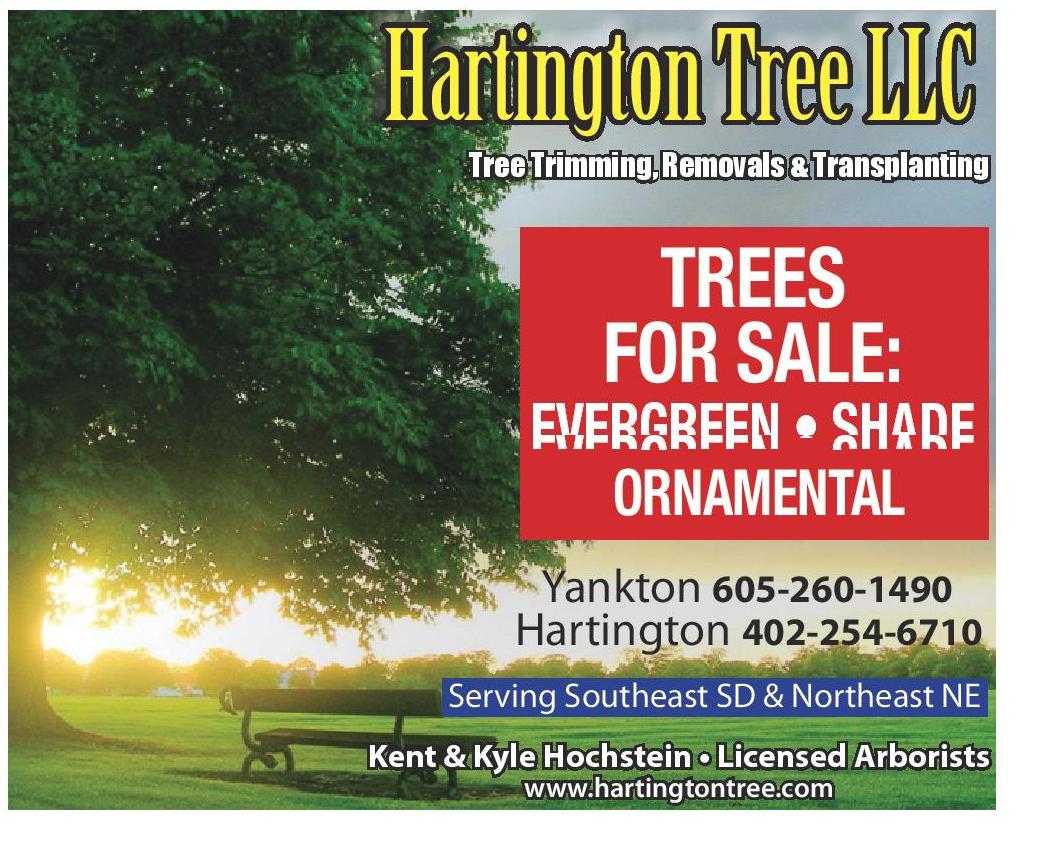

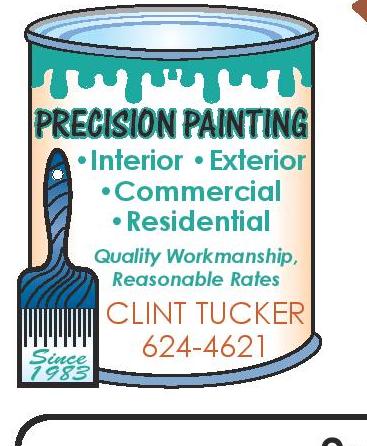



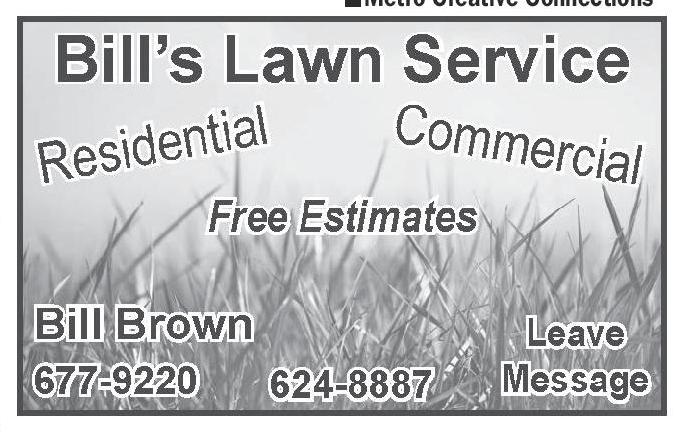
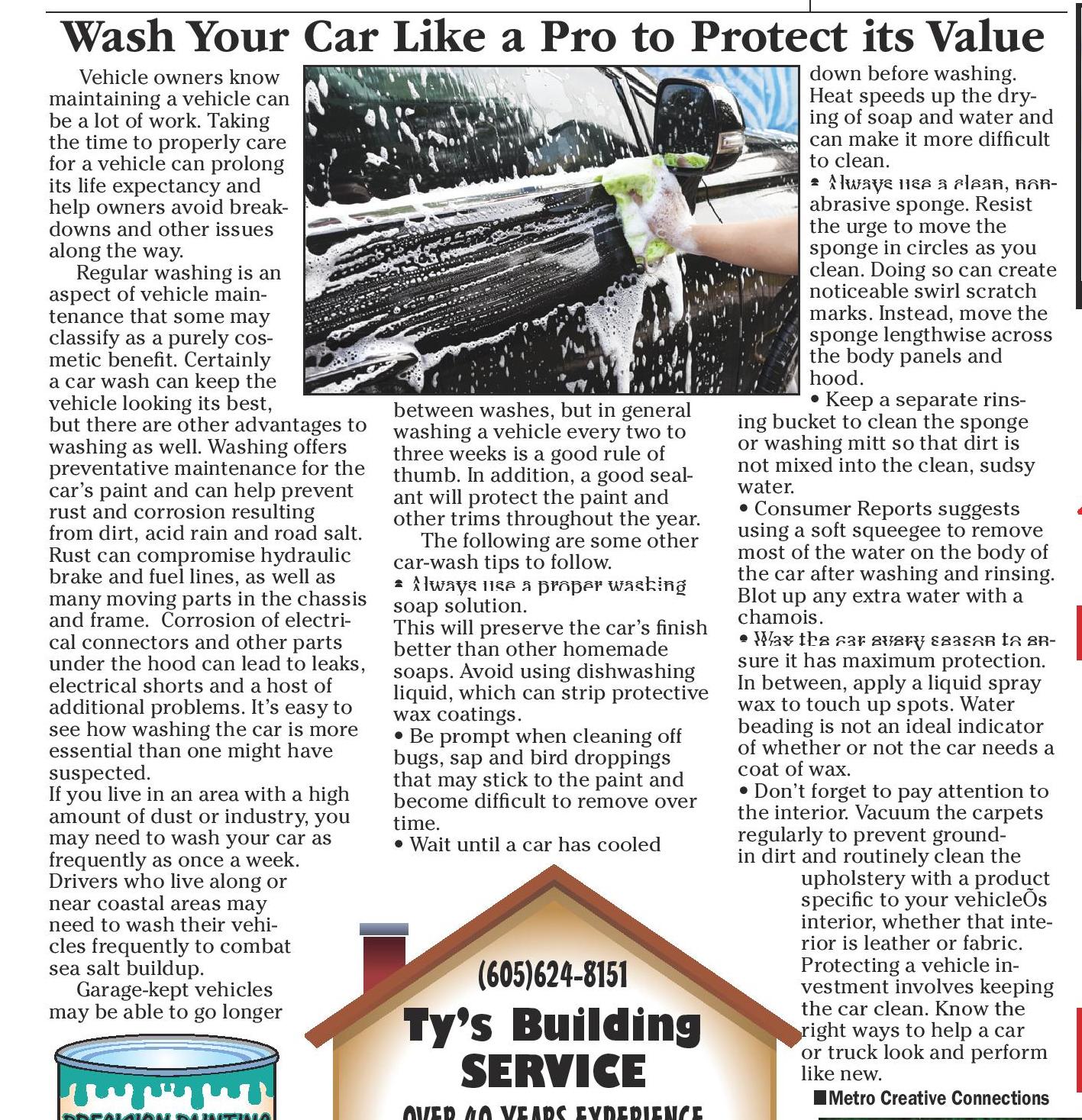
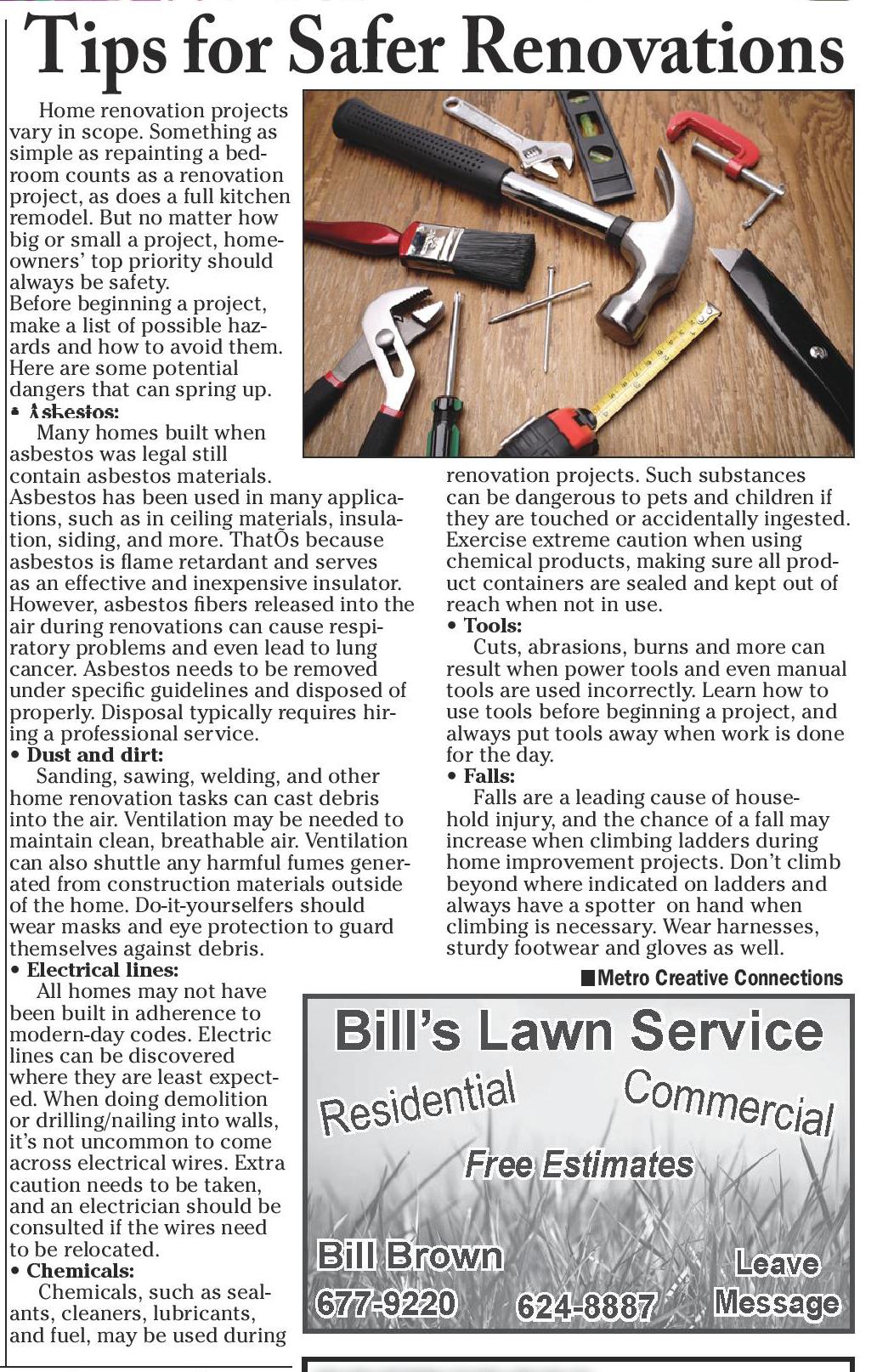
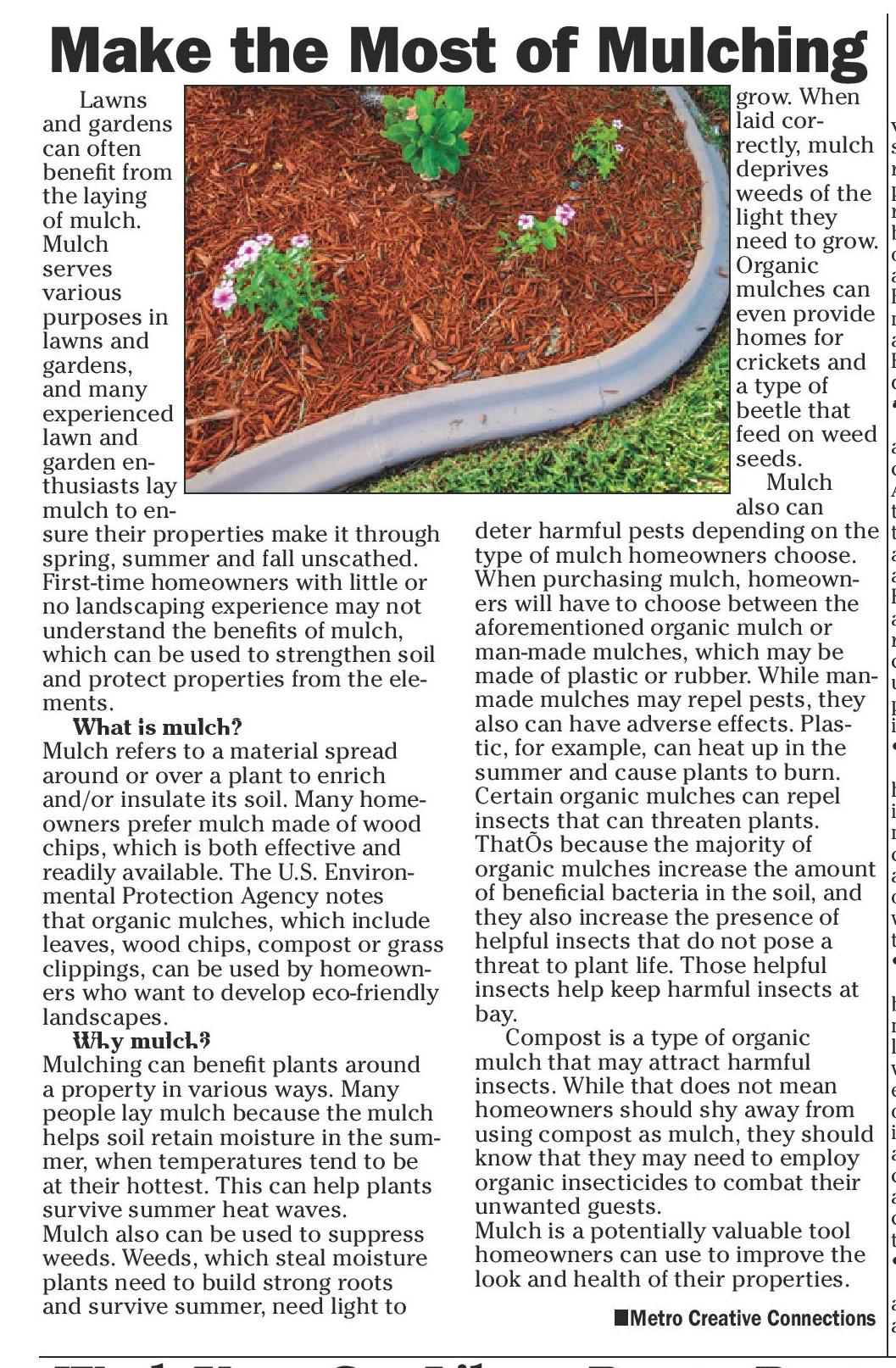


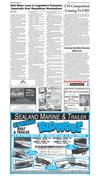
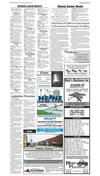
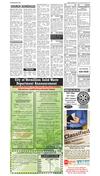
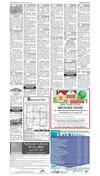
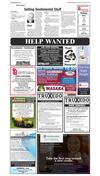
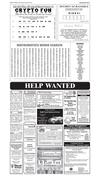
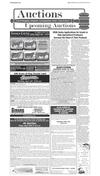
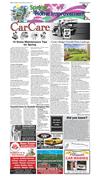
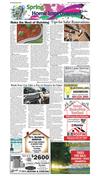
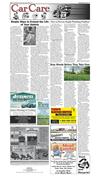
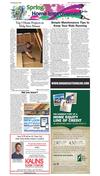
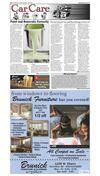
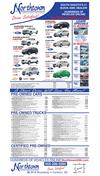
 Previous Page
Previous Page






